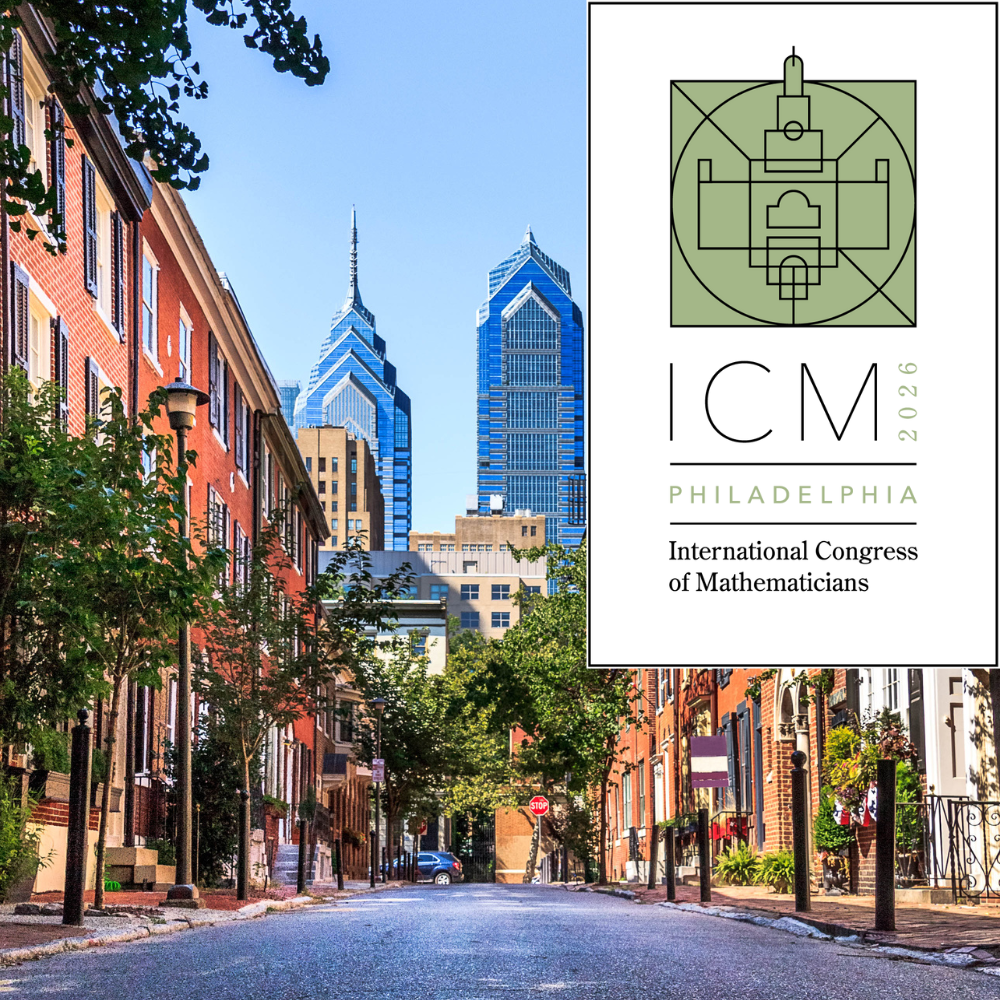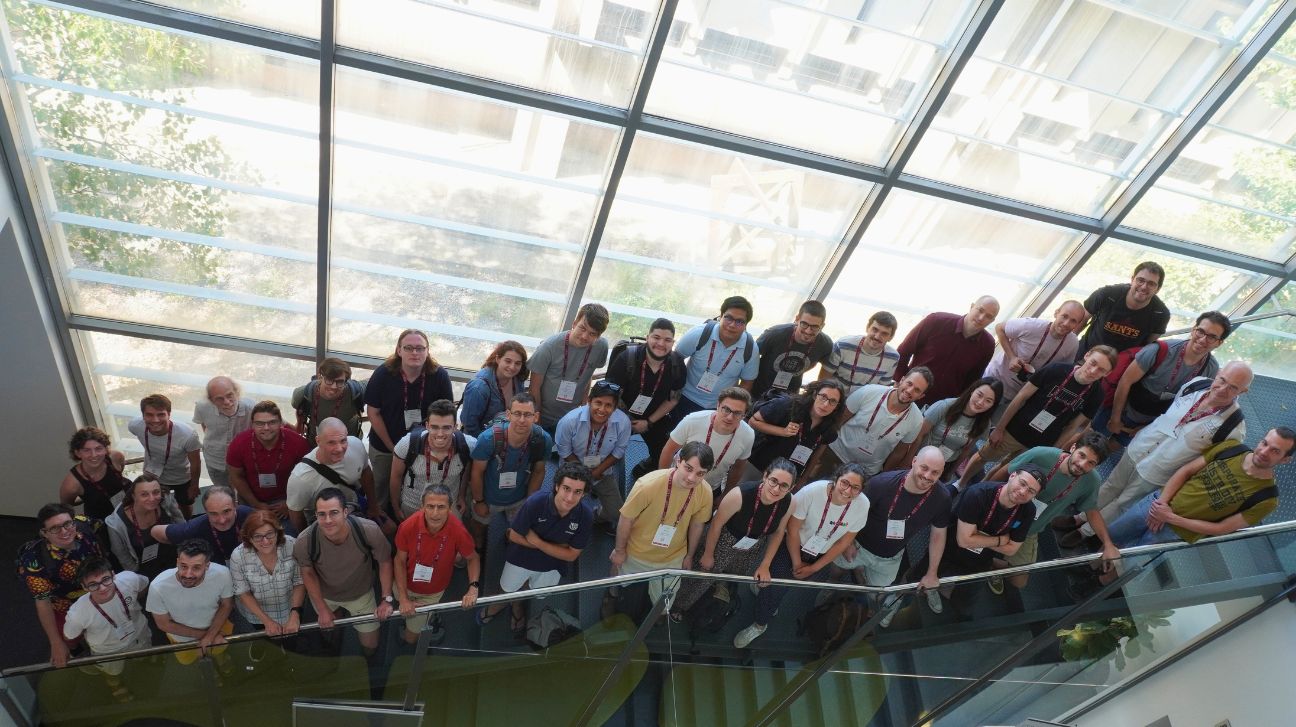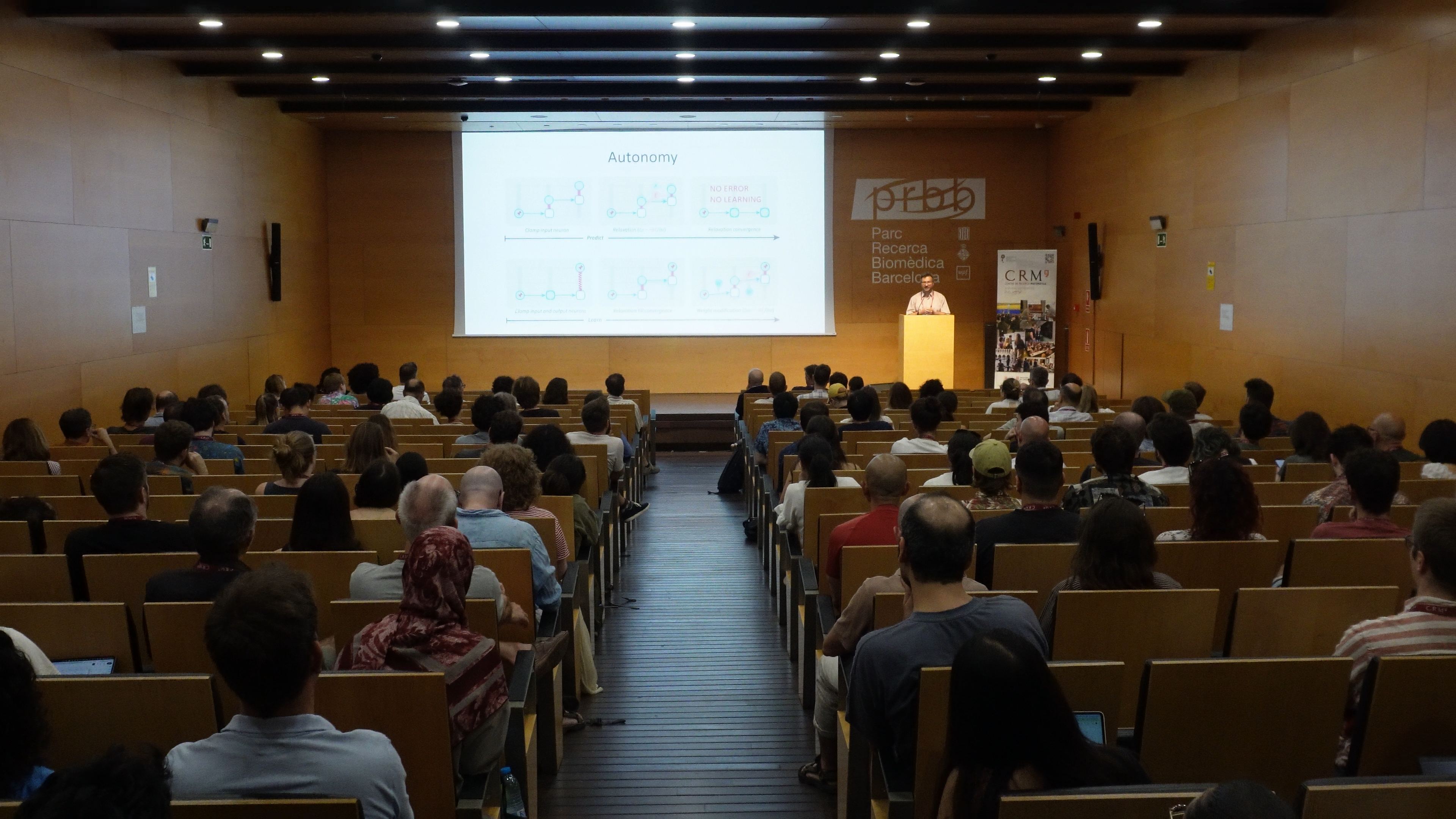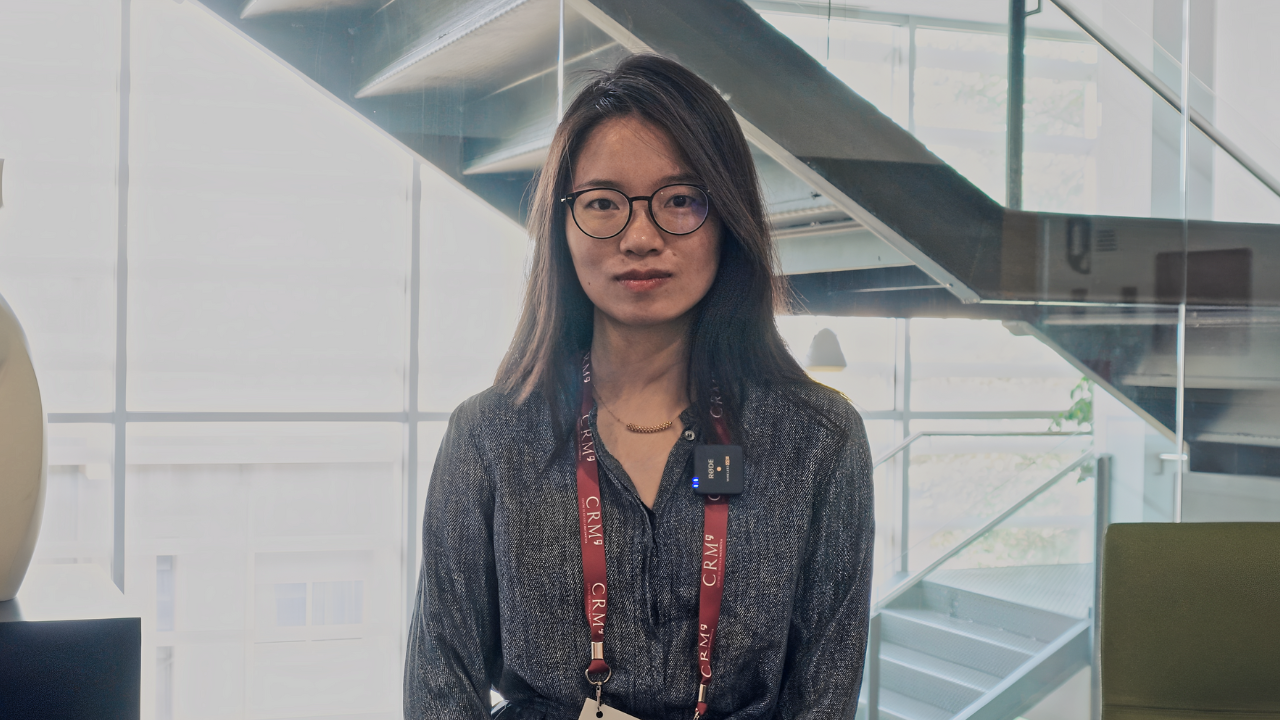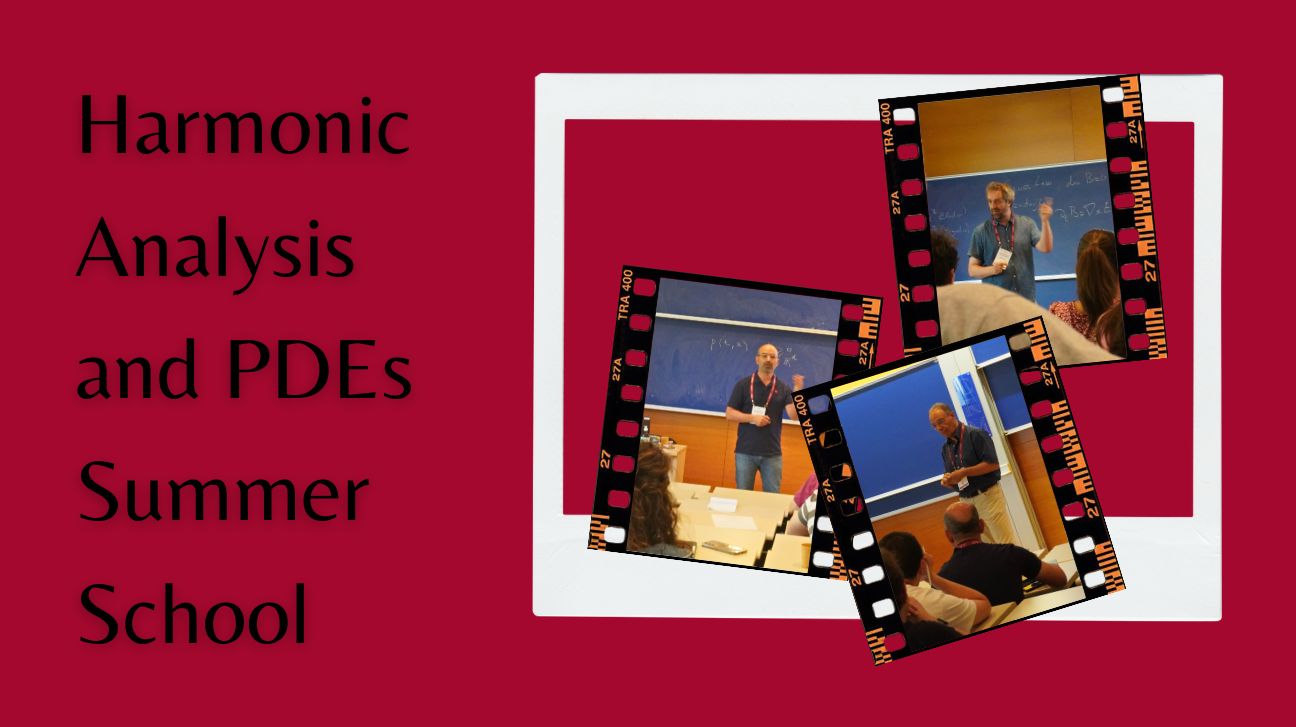During the last Pi Day, the CRM served up a mathematical challenge addressed at students from the UAB Faculty of Science and Biosciences.

Every March 14th (3/14 in the month/day format) mathematicians and math enthusiasts all over the world celebrate Pi Day, named after the constant (known by the Greek letter “π”) that represents the ratio of a circle’s circumference to its diameter and its fascinating history. The date, which also commemorates Albert Einstein’s birth date and was the day Stephan Hawking died, was designated in 2019 by UNESCO as the International Day of Mathematics.
The day was first celebrated in 1988 at San Francisco’s Exploratorium, started by physicist Larry Shaw. Traditions for Pi Day include eating pie (pun very much intended due to the fact that “pi” and “pie” are homophones in English /paɪ/) and reciting from memory the decimals of the number π (if you want a crack at the record, the current Guinness World Record is held by Rajveer Meena of India, who, in 2015, recited 70.000 digits of Pi). This year the CRM joined the celebration with a mathematical challenge aimed at the student community here at the UAB Science and Biosciences Faculty, launched on the same day via the CRM’s social networks, with prizes for the first three people to bring us the correct solutions.
You go on a beach holiday, but you get bored and your mathematician friend helps you with a problem. She/He gives you two empty buckets, one with a capacity of 3/4 L of water and the other with a capacity of π / 4 L of water. He then asks you how you would end up with a bucket containing 1/4 L of water with an error of less than 1%? How many water transfers do you need to get what she/he has asked for?
Three students (two form mathematics and one from biology) got the solution right and claimed their reward.

In praise of Pi
Pi is an irrational number, which means that it cannot be represented as a fraction, and its digits go on forever with no recurring patterns. This means that Pi is infinite, and its exact value can never be calculated (an approximation such as 3.14 or 22/7 is often used for everyday calculations). Currently, about 62.8 million digits of Pi have been discovered, with a group of researchers from the University of Applied Sciences of the Grisons in Switzerland holding the record.
The Pi number has been known for almost 4.000 years, since the times of ancient civilizations such as the Egyptians and Babylonians. The first calculation of π was done by Archimedes of Syracuse (287–212 BC), one of the greatest mathematicians of the ancient world. Over the ensuing centuries, Chinese, Indian, and Arab mathematicians extended the number of decimal places known through tedious calculations, rather than improvements on Archimedes’ method. It was not until 1706, however, that the Greek π letter was used to identify the number, with Philologist William Jones first using the symbol. Later on, it was Leonhard Euler who popularized the use of the symbol among the scientific community in 1737.
Famous mathematicians such as Fibonacci, Newton, Leibniz, and Gauss, have worked on the number, calculating its digits and using it in numerous areas of mathematics.

CRM Comm Team
Anna Drou | Paula Lomascolo | Pau Varela
CRMComm@crm.cat
Three CRM Researchers Invited to Speak at the 2026 International Congress of Mathematicians
From left to right: Xavier Cabré, Joaquim Ortega (photo by Xènia Fuentes, UB), and Xavier Tolsa. Three researchers affiliated with the Centre de Recerca Matemàtica (CRM), Xavier Cabré, Joaquim Ortega-Cerdà and Xavier Tolsa, have been invited to...
Gissell Estrada, beca Leonardo 2025 per explorar la migració col·lectiva amb matemàtiques i robots
L’investigadora Gissell Estrada Rodríguez, professora a la UPC i adscrita al CRM, ha rebut una Beca Leonardo 2025 per desenvolupar un projecte que combina matemàtiques i robòtica per estudiar la migració col·lectiva en sistemes vius i artificials....
JISD 2025 – Where Dynamical Systems Meet PDEs
JISD 2025, held at the Centre de Recerca Matemàtica (CRM) from June 30 to July 4, 2025, featured four advanced minicourses delivered by Dmitry Dolgopyat (on averaging and Fermi acceleration in dynamical systems), Serena Dipierro (on the theory of nonlocal minimal...
ICMNS 2025: Ten Years of Mathematical Neuroscience, Celebrated in Barcelona
The 10th edition of the International Conference on Mathematical Neuroscience (ICMNS 2025) gathered more than 150 researchers from over 25 countries at the PRBB in Barcelona. Organised by the CRM and UPC, with the support of UPF, the event...
Hong Wang: On Solving Kakeya and Rethinking Restriction
At the Modern Trends in Fourier Analysis conference held at the Centre de Recerca Matemàtica, mathematician Hong Wang (NYU Courant) presented a new approach to the Stein restriction conjecture, connecting it with geometric incidence problems...
A Journey through Harmonic Analysis and PDEs – CRM Summer School Chronicle
From June 25 to 27, 2025, the Summer School on Harmonic Analysis and PDEs brought together researchers and students for three days of advanced courses and discussion. With lectures by Taoufik Hmidi, Daniel Faraco, and Joan Verdera, the program covered topics like...

